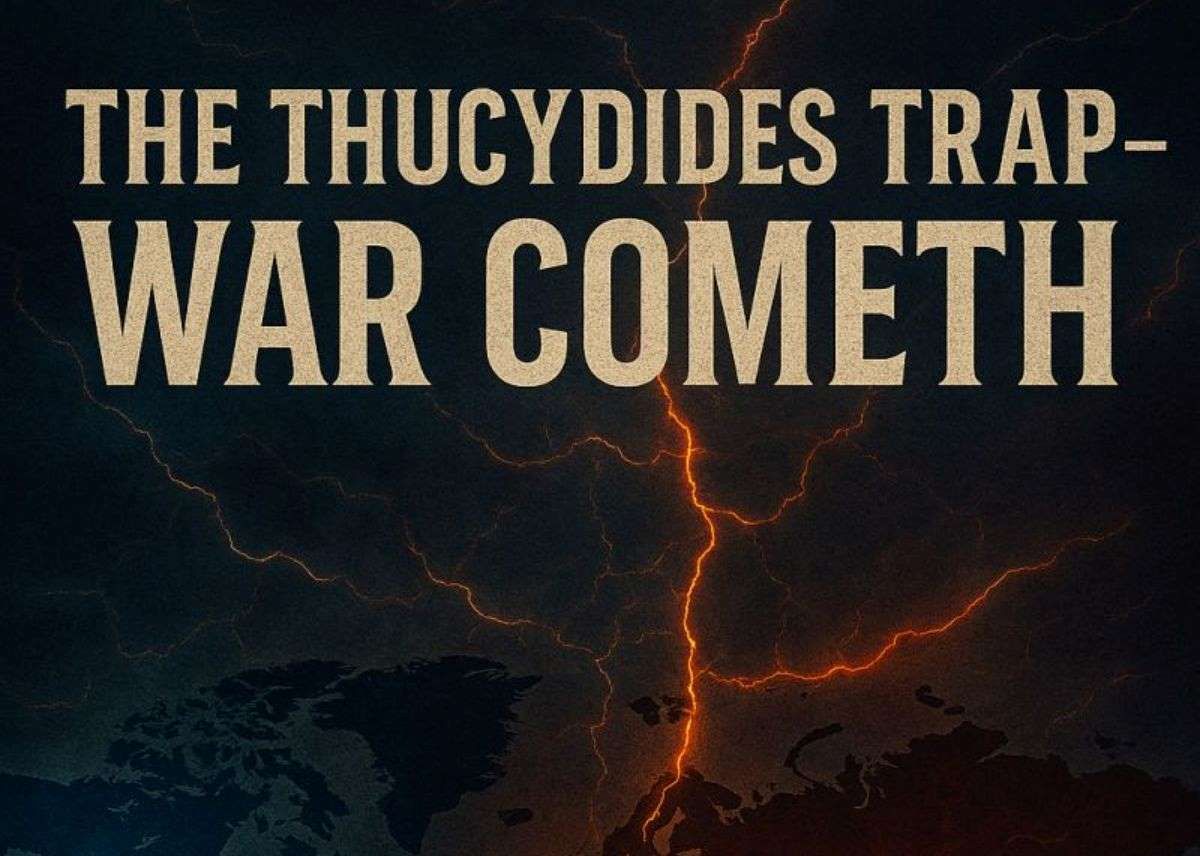In early March 2025, before volatility accelerated and turmoil engulfed the investing world, Warren Hammond’s issued a warning in The Personal View: Positioning for the Market Turmoil Ahead, 2025–2028, saying, “Iran’s escalating conflicts in mid-April 2025 highlight global energy security risks. Oil supply disruptions could spike prices.”
Rising Tensions and Systemic Confrontation
It’s now mid-April. This moment echoes a theme he has long discussed. In 2021, he had published Investment Themes for the Next Decade. One institutional investor, Boston-based, long-only, recently revisited that note, reaching out to discuss one idea now rising with urgency: systemic confrontation.
A minor transgression, regional or symbolic, can spiral into global conflict. Asia and the West drawn in. This is the Thucydidean Trap: when a rising power threatens to displace a dominant one. Harvard’s Graham Allison revived this idea in 2015 and expanded it in his 2017 book Destined for War: Can America and China Escape Thucydides’ Trap?
Warren Hammond’s Personal View: Megatrends & The future of capital
Conflict in a New Age
Today’s war isn’t always kinetic. The tech and tariff wars are structural conflicts, global powers contesting the boundaries of a new world order. The status quo is being washed away (forecast in 2016: The USA – The next 18 years). In its place, a fiery, disruptive, and transformational era led increasingly by China and Asia.
Taiwan is the obvious flashpoint in a hotter war scenario. Since 2016, Warren Hammond wrote about its strategic and symbolic weight in China’s national psyche. But escalation could just as likely come from the Middle East or Ukraine.
More important than the geography is the underlying structural stress between a rising China and an incumbent US. This is no longer about bilateral competition, it’s about global reordering.
Lessons from History
Since January 2016, he has consistently highlighted that history has given us clues. In the context of the Thucydidean Trap, Allison studied 16 cases where rising powers confronted established ones. In 12 of them, war followed. Only 4 resolved peacefully. Key examples include:
• Sparta vs. Athens (5th c. BCE)
• Germany vs. Britain (early 20th c.)
• France vs. Habsburg Spain (16th c.)
• Japan vs. U.S. (early 20th c.)
• Napoleonic France vs. Britain (early 19th c.)
• US vs. British Empire (late 19th c.) – a peaceful transition
• Germany vs. Russia (late 19th–early 20th c.)
The lesson? When dominant powers feel threatened, miscalculation often leads to escalation.
The US-China relationship now sits at that precipice. Whether this ignites in Taiwan, Ukraine, Middle East or plays out in a cooler “war” format in Tariffs and Technology, or any combination, it is and will continue to redraw the map and most certainly redefine and restructure global power.
How do you think global tensions are reshaping our future?
Let us know by leaving a comment below, or send a WhatsApp to 060 011 021 1
Subscribe to The South African website’s newsletters and follow us on WhatsApp, Facebook, X and Bluesky for the latest news.
